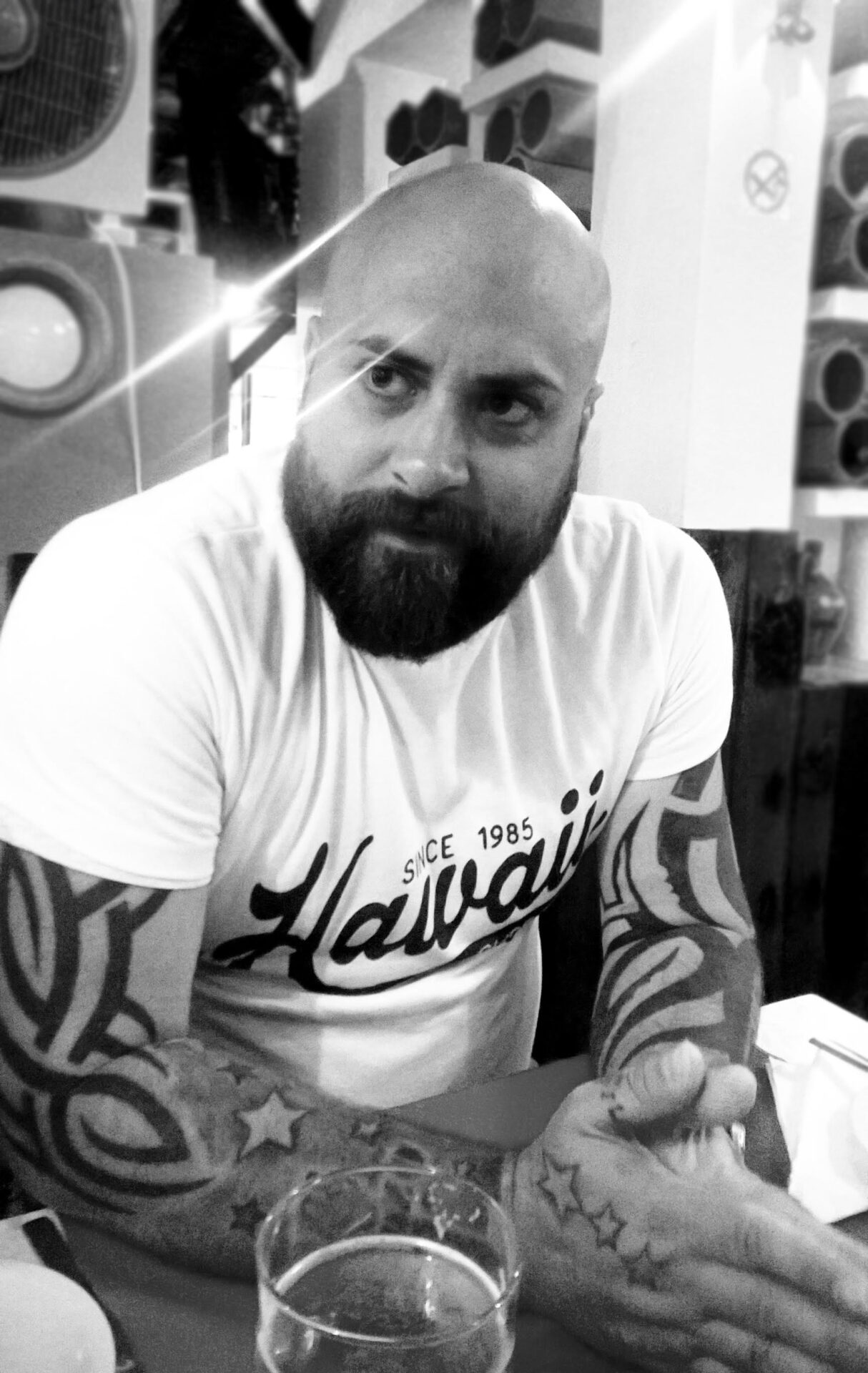Wayne Leeming (who writes under the name M.W. Leeming) is an author, tenants right campaigner and musician. His debut novel ‘Justice Is Served ‘ was published in the summer.
Tell us a little about Justice Is Served, and the themes it tackles.
Justice is Served” is the story of Jack Jones, a disillusioned young criminal defence lawyer who decides to turn himself into a costumed vigilante. As a child, he experienced an abusive upbringing at the hands of his mother and step-father, primarily because his step-father envied Jack’s genetic condition (congenital analgesia), which stops him feeling pain. In a first-person narrative, we learn why Jack believes the criminal justice system is inadequate and how setting out on a path of vigilante justice is, to him, a justified course of action.
The idea was to put Jack on a mission in which he learns that the choices he makes have a much wider impact on those around him and those he cares for. Ultimately, it is about demonstrating that despite the flaws of the justice system, any form of vigilante action undermines the system that we have democratically established.
The book leans heavily on comic book tropes. How into comics and superheroes were you growing up?
Growing up, I was very much into superheroes – and still am. I used to read a lot of comics. One of my favourites was M.A.S.K. (I still have my collection of those even now!) There’s something very appealing about the idea of people with extraordinary powers, going through a transition from normalcy to uniqueness and making moral decisions based on the principle that such gifts can be put to use serving the need of others. As I grew up, I drifted away from comics and fell in love with the movies, so I lost my connection with the aesthetic of story-telling with picture art. I never truly got into graphic novels and it is, effectively, as a result of writing “Justice is Served” that my interest in them has been rekindled.
How much sympathy do you have with lead character Jack Jones, and the choices he makes?
It was my hope that Jack Jones would be a character with whom people would sympathise, yet not so much as to lose sight of the overall message of the book. I sympathise with his life experiences, for example. Despite his condition, he still finds himself the victim of bullying. And childhood abuse stays with us. It is this sense of injustice which fuels his moral conflict later on in life; the idea that people seem to get away with harming others seems fundamentally unfair to most of us, but to Jack it is amplified by virtue of being the victim of years of abuse that was never punished.
So, I sympathise with that. And to a certain extent, I also sympathise with some of the choices he makes. Suppressing anger at a perceived injustice takes a great deal of emotional strength, and I would suggest that from time to time, we all harbour dark fantasies of revenge.
But as far as sympathy for Jack’s actions is concerned, I have none. Recognising a fantasy and suppressing it is a completely different matter to acting on them. And I feel that crossing that line takes Jack into territory that is hard to sympathise with, and in this way, I intended to use him as a way of arguing a case.
How much did you draw on your background in criminal law?
I spent about ten years in criminal defence, so there was a lot to draw on. There’s a great deal in the book that is based in some way on my experiences. It was vital that the legal backdrop be as authentic as possible, and to achieve that it seemed logical that some of the things I experienced find their way into the book. Some of the events that occurred, and their legal implications required a good deal of puzzling out, and remembering back to my days assessing evidence and law. As the book has a message about the dangers of vigilantism, it wouldn’t work if the legal system in which that message was being conveyed was a shambles of inaccuracies. Having said that, I gave up my work in law about eight years ago, so things may have changed. I’ve tried not to complicate it with truly in-depth legal issues, so as to keep those issues on a general level that maintains as accurate a backdrop as possible.
What would you like readers to take away from the book?
I suppose I’d like readers to take from the book an enjoyable superhero-style story, but within that, I’d also like them to take the more serious message about the dangers of taking the law into our own hands. There’s a fair bit of philosophical thinking in the book, which fits the character’s mind-set, and whilst I don’t agree with everything he says or thinks, philosophy is about posing questions and getting people thinking. The fact that I tried to do this in a light-hearted, conversational prose and through means of a genre that is very popular should, I hope, make such philosophical questions more accessible.
You also campaign heavily for tenants rights and have written a book on the issue. How did you become involved with that?
Having been stuck in the rent-trap for nearly twenty years, I’ve had a lot of bad experiences renting. And not just with landlords, but with letting agents, councils, deposit protection schemes and various different bodies set up to receive complaints. I’ve seen things over the years change for the increasing disadvantage of tenants, and I believe that exposing this through sharing our experiences is the key to making change happen. As an ex-lawyer, I often found that people would come to me for help. They still do, in fact, and I quite enjoy giving up my time to provide advice or get involved writing letters and completing documents for them. My self-published book Generation Rent: The Inequalities of the Private Lettings System is intended, through an anecdotal approach, to demonstrate how law and procedures work for or against them. I tried to do this by first explaining various problems we had (because ultimately, the same things happen to others), and then analysing the reactions from landlords, letting agents and whoever else, in accordance with the legal principles that govern such events. It was designed to be a tool for empowering people.
What are you working on at the moment?
Currently, I have several pieces of work on the go. I tend to work on several at once, jumping and flitting between them as and when the urge takes me. I’ve nearly completed a novel about a bailiff, in which the themes of mental illness, addiction and forgiveness are key.
There’s a sequel to “Justice is Served” bubbling away, and an alternate reality/dystopian novel.
There’s one other project I’m really quite excited about. Thanks to the support and encouragement of a friend (himself a talented writer), I’ve been putting down a few ideas for a “Justice is Served” graphic novel. It’s a challenge, but it’s a fun one. The story lends itself well to such an adaptation, and I’m looking forward to making some progress with this.
http://mwleeming.weebly.com/about.html
@MWLeeming




